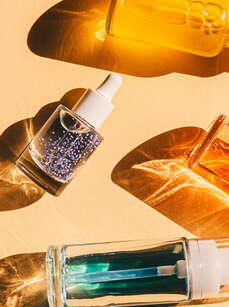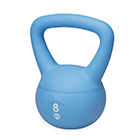POPSUGAR
Trending Stories
Spotlight
Introducing
01/01/1970
The Beauty Sustainability Challenge
These tiny (and expert-backed) tweaks can help you live a more sustainable lifestyle.
Read More
Every editorial product is independently selected by our editors. If you buy something through our links, we may earn commission.
19 hours ago
Make Your Engagement Party Shine With These DIY Elements
You're engaged!
Paid Content For Sam's Club
YESTERDAY
Meet the New Sports Drink With Zero Sugar, and No Artificial Sweeteners, or Dyes
While staying hydrated is key to a successful workout, water alone doesn't always cut it.
Advertiser Content From BODYARMOR Zero Sugar
:extract_cover()/2024/04/12/820/n/1922729/tmp_sSI6XI_fe25edd5186c0f58_Main_PS24_04_Identity_YoungPeopleDiagnosedWithCancer_1456x1000.jpg)
:extract_cover()/2024/04/16/728/n/1922729/tmp_75b30W_89ba11e63315cb85_Main_PS24_04_Identity_FlaujaeJohnson_1456x1000.jpg)
:extract_cover()/2024/04/16/952/n/1922441/92d5a354661ef2d75a2221.02689297_.jpg)
:extract_cover()/2024/04/16/907/n/1922283/tmp_ISyHrU_e0490ceddb7707eb_Main_PS24_Juntos_SelenaQuintanila_1456x1000.jpg)
:extract_cover()/2024/04/15/892/n/1922441/7c3ebf5c661d8d22cc3205.20465363_.jpg)
:extract_cover()/2024/04/11/917/n/1922153/6e834c1566184f853f2673.07667178_.jpg)
:extract_cover()/2024/04/16/716/n/49351082/931e50cb661ea341b35388.06279410_.jpg)
:extract_cover()/2024/04/18/825/n/3019466/58d5ede666216b2863d248.87443275_.jpg)
:extract_cover()/2024/01/19/993/n/1922794/99e2f79e65aafca3d1e977.96984305_.webp)
:extract_cover()/2024/04/16/703/n/1922441/6b977a7a661e9eb704a4b3.28665086_.jpg)




:extract_cover()/2024/04/12/029/n/1922283/283c35b26619c6d033b245.43898085_.jpg)
:extract_cover()/2024/04/08/719/n/1922283/d57fb6146614184bb71c53.56063776_.jpg)
:extract_cover()/2024/04/03/788/n/1922283/46af8965660d97e61b9094.44808590_.jpg)
:extract_cover()/2024/03/18/856/n/1922283/tmp_ZRWhy9_a4df95a36d0af8ec_Cristina_Escobar_TEDx_IMAGE.Headshot.png)
:extract_cover()/2024/04/17/940/n/1922564/555b7dd76620405a9e6112.88960291_.jpg)
:extract_cover()/2024/04/17/887/n/1922564/6c5e064c66202e8e586a50.26822675_.jpg)
:extract_cover()/2024/04/17/850/n/1922564/3101db4e662021ff34f4e7.99060134_.jpg)
:extract_cover()/2024/04/15/733/n/1922564/ce0d36f5661d575cdbc405.83285570_.jpg)
:extract_cover()/2023/05/16/715/n/1922153/035c3cbe6463aaf27b04b9.59649602_.jpg)
:extract_cover()/2024/04/18/703/n/1922153/4de1fe60662141cc7ac343.54452746_.jpg)
:extract_cover()/2024/04/18/666/n/1922153/717382ec66213568b2fd75.53252480_.jpg)
:extract_cover()/2024/04/17/971/n/1922153/ccbd7d0a66204ae30b2008.73849579_.png)
:extract_cover()/2024/04/18/754/n/1922441/9768a469662152f9c1f9e8.18133359_.png)
:extract_cover()/2024/04/18/879/n/1922729/409efeb266217d31243973.47561765_.jpg)
:extract_cover()/2024/04/16/871/n/1922441/6e07917e661ed79fa9a433.17176842_.jpg)
:extract_cover()/2024/04/18/723/n/1922729/0768916f662148966b7e10.60700088_.jpg)
:extract_cover()/2024/04/17/751/n/24155406/5ec832d7662000a7ba1508.81062093_.jpg)
:extract_cover()/2024/04/12/977/n/24155406/b401238b6619b56b41f7d1.49415369_.jpg)
:extract_cover()/2024/04/09/791/n/24155406/40c9d8f966158235c33aa5.52886392_.jpg)
:extract_cover()/2024/04/08/852/n/24155406/7a19f58366144517081b76.68057716_.jpg)
:extract_cover()/2024/04/17/973/n/1922153/7808668d66204b910dc505.11176470_.jpg)
:extract_cover()/2024/03/21/370/n/1922729/9749294d65fbe769b48135.47581618_.jpg)
:extract_cover()/2024/04/17/908/n/1922153/ed8f3b1d662035796e4fe4.71633963_.jpg)
:extract_cover()/2023/10/27/743/n/1922398/0bc7bd2f653bea537a6ad0.51509500_.jpg)
:extract_cover()/2024/04/17/916/n/38761221/a8fd68ce6620382b5ab914.64298852_.jpg)
:extract_cover()/2024/04/17/874/n/1922441/f49347c566202a11608a85.65290916_.jpg)
:extract_cover()/2022/06/28/843/n/47518575/fd0b194562bb52f4332690.03943812_.jpg)
:extract_cover()/2024/04/15/867/n/1922729/abe43370661d84de7b0612.83001200_.jpg)